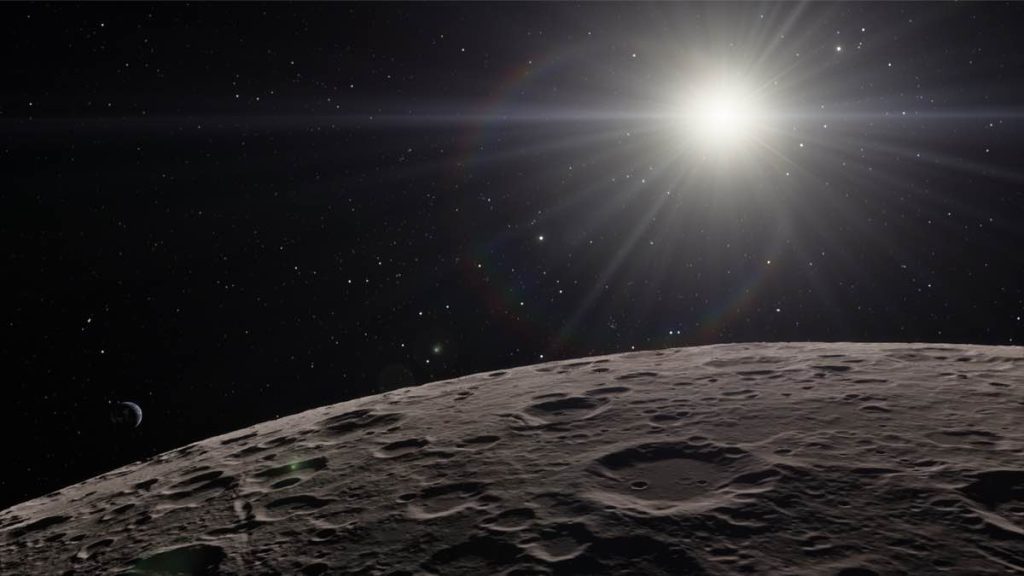
This year, there’s going to be a significant amount of traffic to the moon. The reason for this is to confirm the presence of water and to figure out how to extract it.
53 years ago…
Signs of water vapour were first detected by Apollo 14. More evidence has surfaced since, around the moon’s poles. But this year, they’re going to actually find it. The Americans, Chinese and Indians are investing billions to extract water crystals which they know are lurking. The hypothesis is there are probably billions of gallons just waiting to be tapped.
The probability of water on the moon has created a lot of excitement, bringing the prospect of human colonisation from the drawing board to an achievable reality. But populating the moon is just the tip of the iceberg. Or more accurately, the tip of the tip. Because the aspect of moon water which excites scientists the most, is its molecular structure.
H20
Once a molecule of water is split into its atomic components, you have the basis for rocket fuel in the hydrogen atoms and the sustenance of human life in the oxygen atom.
This means the moon is a perfect launchpad because it will now be an affordable logistics and manufacturing hub to enable us to explore space beyond even the gravitational influence of our own sun. With enough fuel to return. And enough oxygen to live, whilst returning.
This is the endgame. Excuse the obvious metaphor, but this really is the next giant leap in our quest to find a new home. Another insurmountable barrier to space exploration, removed.
You’re probably wondering why they don’t just split the water molecule here on Earth. Well, the costs of this are so outrageous that to attempt to acquire funding for such an endeavour would break a government. The cost to do the same on the moon is a fraction of the amount. Well, why don’t they just ship the water to the moon, then? Good question. At the moment, it costs over a million dollars to get one litre of H20 to the moon.
The economics of basing the operation on the moon workable. And now the moon has provided us with the raw material.
2024 will ultimately be remembered for war, poverty, probable genocide, AI-generated elections and whatever else is currently making you feel uneasy or pessimistic.
But in a hundred years’ time, it’ll also be recorded that 2024 was the year humankind passed yet another milestone to propel us where only our telescopes have taken us before.
Only the very youngest of us will live to see a human reach the edge of our solar system. That’s a journey of fifteen trillion kilometres.
The distant future would consider that to be baby steps. But first steps nonetheless.
We find it interesting that NASA’s Artemis programme has just announced plans to build a nuclear reactor on the Moon. The synchronicity of both events is now clear.
A Younger World
I was fortunate enough to be alive at the time, and aware, of the Apollo 11 moon landing. I’ll never forget it. I was a schoolboy living in London and I can promise you, from the moment we heard “Houston, this is Tranquility Base. The Eagle has landed.”, to six hours later when we heard Neil Armstrong’s immortal “That’s one small step for a man…” the whole of London was at a standstill. We all felt involved, this wasn’t just an American achievement. I felt proud to be human and feeling extraordinarily lucky to be alive at that moment.
Given the state of the world at the moment, it’s hard to feel proud as a human and I think the whole feeling lucky thing is just as irrelevant.
But I’m still going to stick my neck out and claim that history will record 2024 as the year we leapt over a significant hurdle to understanding our origins and discovering that we are not alone.
You may say I’m a dreamer
But I’m not the only one
I hope one day you’ll join us
And the world will be as one.
John Lennon
Inside Telecom provides you with an extensive list of content covering all aspects of the tech industry. Keep an eye on our Insights sections to stay informed and up-to-date with our daily articles.